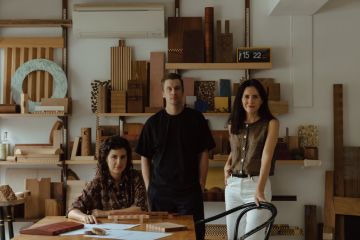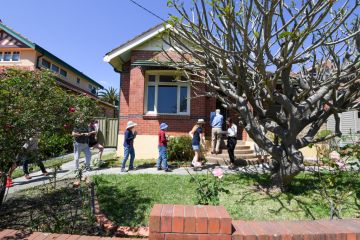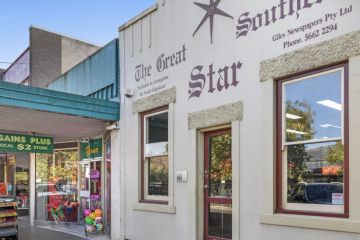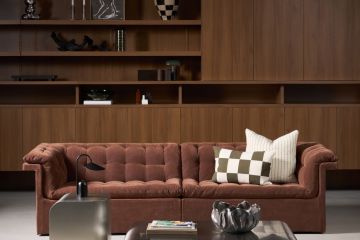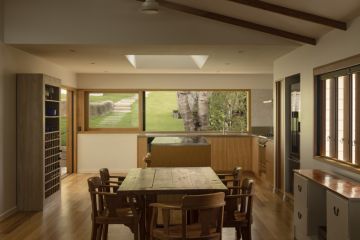'We sold our house and bought a bus instead': The couple living in an old school bus
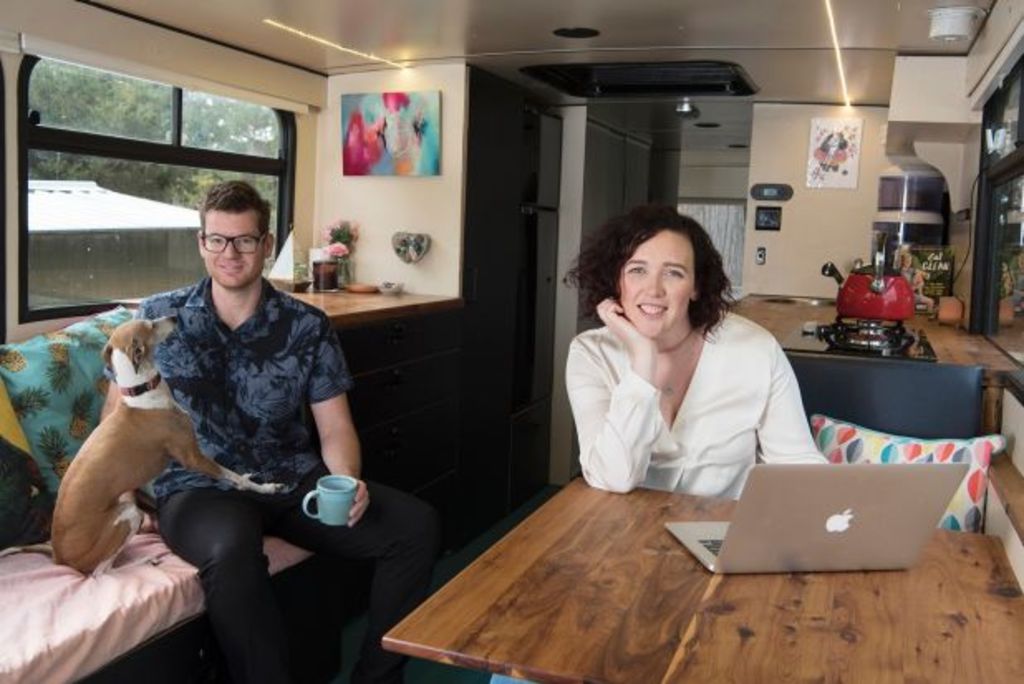
In 2009, Laura Banks and Matt Tucker achieved what so many young Australians are striving for: they bought and renovated a three-bedroom house. Yet in 2015 the husband and wife – who are now in their mid-30s – realised they had a different dream.
“It didn’t really suit our lifestyle,” says Banks. “So we put the house on the market and we rented a house for 2016 and we were just trying to figure out what our next step would be. We looked at a few blocks of land but nothing really felt right.”
Then Tucker came up with the idea of converting a bus into a home on wheels.
“I was at that point where I was like, ‘I don’t care what we do – let’s just try something – something that gets us closer to the lifestyle we want to be leading, which is one where we’ve got freedom and flexibility,'” says Banks.
Banks was working for the health department at the time but growing her own communications business on the side, while Tucker is a firefighter.
The couple bought an old school bus for $7000 in October 2016 and Tucker, a former carpenter, got to work on the interior so that it would be liveable by the time their lease was up in December.
The project took 15 months altogether, during which time it was parked on a friend’s large property on the outskirts of Hobart. Banks and Tucker spent months living in a caravan next to the bus.
“Those first few months were really hard,” says Banks. “We didn’t have a bathroom or anything like that. I definitely struggled. Trying to look presentable for work when you’re effectively living in a camping situation was very much outside my comfort zone.”
- Related: We live in a shipping container
- Related: What it’s really like to build your dream home
- Related: One couple’s adventure around Australia
Fast forward to now, and the converted bus is a sight to behold. It features a queen size bed, vanity, dining table, couch, washing machine, wardrobe, full size pantry, fridge and freezer, oven and stove top, composting toilet, and a gold and teal mosaic shower. The next phase of building will see a pop-top installed on the roof so that the current bedroom can be turned into Banks’s home office.
Banks and Tucker live comfortably on the bus with their cat and two dogs, and can accommodate up to eight people for a dinner party.
It is currently parked at Banks’s parents’ home while they prepare to become more nomadic. They say they can’t imagine going back to living in a house anytime soon.
“I love living in a small space,” says Banks. “It doesn’t take long to mess up, but then it doesn’t take long to clean up either, so I love that. Life is really easy… Now when I go to other people’s houses they feel huge to me!
“There are things that we thought were essential that just aren’t. Kitchen appliances were a big one. Even just things like the number of sheets and towels that you need, or that you think you need… Everything that’s on the bus now, I know it’s here because it makes me feel good or it serves a purpose in helping us live the life that we want to live.”
The only downsides, according to Banks, are not being able to fully stretch out in bed in the morning, not owning a bath and having to be extra mindful of power use (although this is really a blessing).
Of course, one of the main driving factors behind the couple’s decision to live in a bus is so that they can take off on road trips whenever they please.
As a firefighter, Tucker works four days on and four days off, making it easy to regularly venture around Tasmania. This winter they’ll be heading north for two months to escape the cold, and then in 12 months’ time they plan to embark on an extended trip around the mainland.
While Banks and Tucker can’t see themselves living anywhere but on the bus for the next few years, they do think they’ll end up buying a house again eventually. In the meantime, they’re saving huge amounts of money and enjoying the simple life.
“It gives us freedom and flexibility in where we go, and when we go, and it’s given us financial flexibility as well,” she says. “When we had a mortgage or were paying rent then a big consideration every time we went away was that we were spending all this money on a house that was sitting there empty. And now we have a home that we can take with us. It gives us more time to do the things we really love doing, which is being out exploring and seeing new parts of our state and country.”
We recommend
We thought you might like
States
Capital Cities
Capital Cities - Rentals
Popular Areas
Allhomes
More

